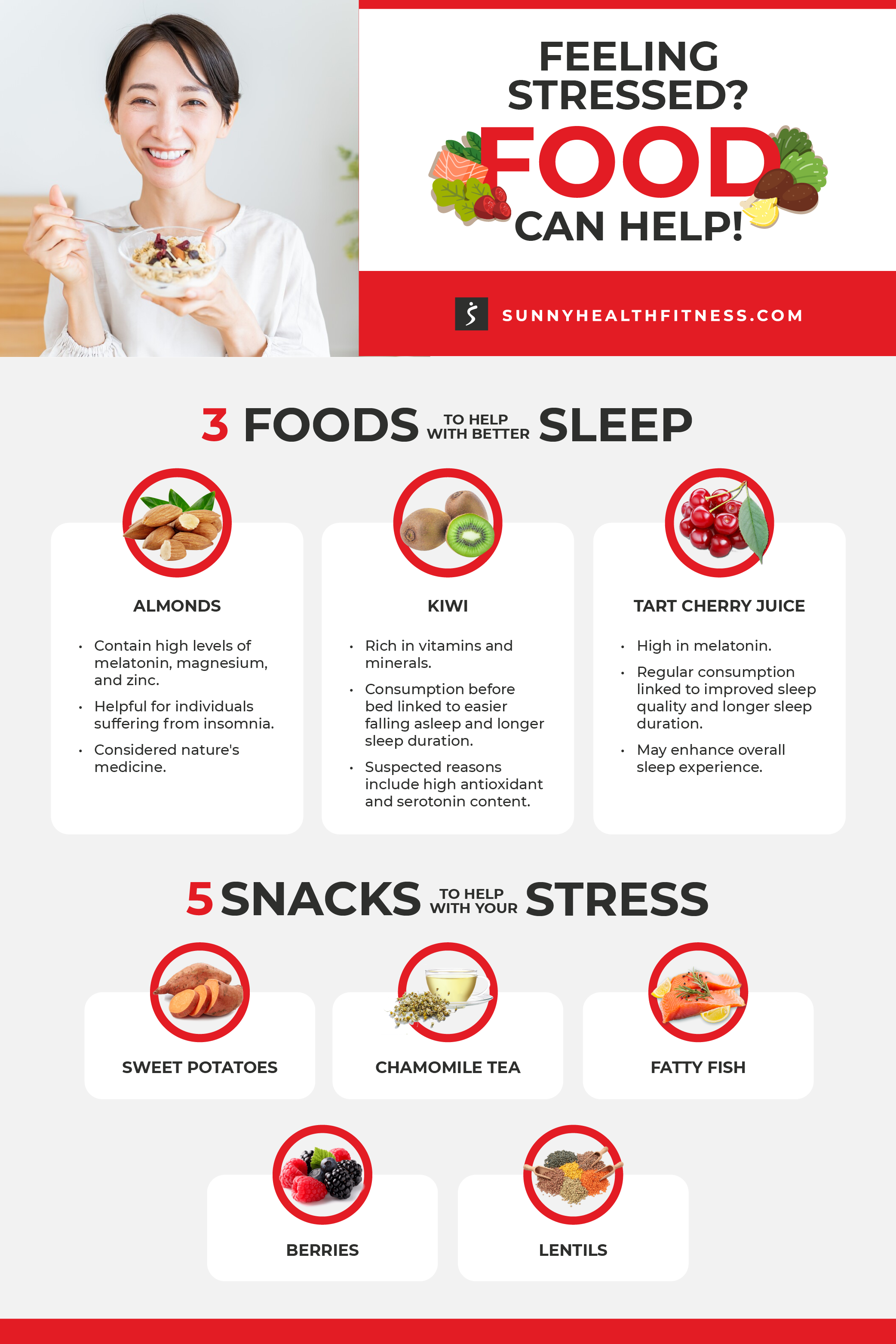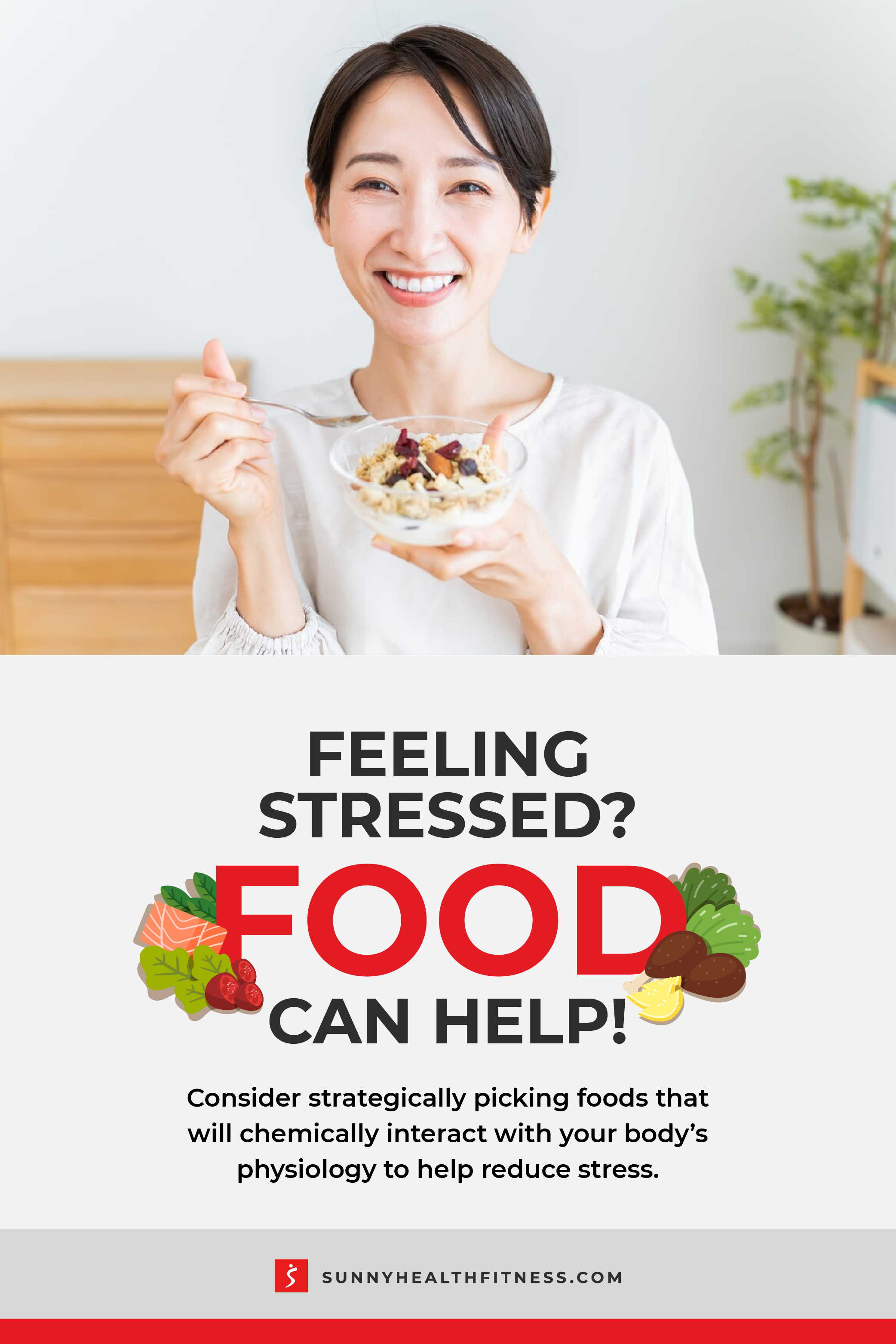Published 4/4/2024, updated 10/31/2025
Everyone experiences some type of stress from time to time. In fact, according to the American Psychological Association, 27 percent of adults reported that they were so stressed they were unable to function in their daily lives.(1)
While facing stress is a normal part of life, it is important to prevent stress from bubbling up into overwhelm. That’s where stress management tools come in. Not every technique is going to resonate with you, but when you find your way, stick with it.
One option that you may not have yet considered is food. And this doesn’t mean stress eating – that’s not what we’re after here. Rather than overeating or overindulging in foods that provide temporary relief but might not feel good later, consider strategically picking foods that will chemically interact with your body’s physiology to help reduce stress. This can be one technique of many in your stress management arsenal; a way to nourish your body and your mind. Read on to find out how this can work for you!
Why A Well-Rounded Diet Matters
First, let’s start with assessing your current diet. Ask yourself these questions: Am I getting enough essential nutrients with each meal? Do I eat enough fruits and vegetables? Do I feel like the foods that I eat are nourishing me inside and out?
If the answer is no, that’s okay! This can be where you can start making meaningful changes. Think about adding more fruits, vegetables, whole grains, healthy fat, and protein to your diet. When your body is getting adequate nutrients to function at your baseline, you will have more energy for tackling stressful situations, recovery, and sleep – all essential aspects of an effective stress management routine.(2)
3 Foods to Help with Better Sleep
Sleep is an essential component of stress management. This is your body’s time to regenerate and rest and allows you to wake up ready to take on the day. If you’re not getting adequate sleep, stress can easily start to compound and build. Try these 3 foods to help you drift off to sleep with a little more ease.
1. Almonds
Almonds and other nuts such as walnuts, pistachios, and cashews, contain high levels of melatonin, magnesium, and zinc. These three substances have been found to help individuals who often suffer from insomnia. Nature’s medicine!
2. Kiwi
Even outside the context of sleep, kiwis are chock full of vitamins and minerals, great for contributing to your daily intake of essential micronutrients. Furthermore, scientists found in one recent study that people who consumed kiwi about 2 hours before bed had an easier time falling asleep and were able to stay asleep for longer. The data doesn’t indicate what exactly the root cause of this is, but it is suspected that it can be attributed to kiwi’s high antioxidant and serotonin content.(3)
3. Tart Cherry Juice
Tart cherry juice contains a high content of melatonin, widely known as a substance that helps improve sleep. People who regularly drink tart cherry juice or eat tart cherries have been found to have a better sleep quality as well as extended sleep time per night.(5)
Stressed? Snack on These 5 Foods
If a stressful day at work typically makes you turn towards junk food or dessert, you might consider trying these other snack options instead! Each of these foods contain nutrients that are helpful in reducing stress.
1. Sweet Potatoes
Sweet potatoes have moderate amounts of magnesium, good for both sleep and stress.(5) Scientists have demonstrated that sweet potatoes can be helpful in reducing cortisol, your body’s stress hormone. What’s more, they are packed with complex carbohydrates and can be a good alternative to satisfying that comfort food craving you might turn to when stressed.
2. Chamomile Tea
Chamomile has long been used to promote sleep and reduce stress. And for good reason! Scientists believe that apigenin, a flavonoid found in chamomile, is effective in depressing an over-active nervous system and fostering feelings of relaxation.(6)
3. Fatty Fish
Omega-3 Fatty Acid that can be found in fatty fish and seafood, has been linked to lower levels of anxiety. This is connected to an improved function of anti-inflammatory and anti-stress neurochemical mechanisms in the brain.(5)
4. Berries
Berries contain high levels of both Vitamin C and antioxidants, effective at providing anxiety relief when consumed regularly.(7)
5. Lentils
Lentils are high in fiber, which has been shown to improve overall health in many ways, one of which is stress reduction. Scientists believe that improving your gut health via fiber intake is helpful in boosting overall mental health. This is still novel research, but current studies indicate that a healthy gut can help lead to a less stressed mind.(5)
Beyond Food
Stress management and a good sleep schedule is more than simply eating foods high in magnesium or antioxidants – this is just one piece of the puzzle. There is no magic cure to control these two vastly important facets of health and wellness. To best address these issues, examine your current routine and ask yourself where it might be lacking. Are you on your phone all the way up until bedtime? Are you overbooking your schedule and feeling overwhelmed? Notice patterns of dysfunction that may be contributing to high stress or insufficient sleep. From there, you can implement healthy lifestyle changes while also enjoying a sweet potato or two.



























Add Your Name & Email
Please enter your name and email to continue.We won’t display your email publicly.